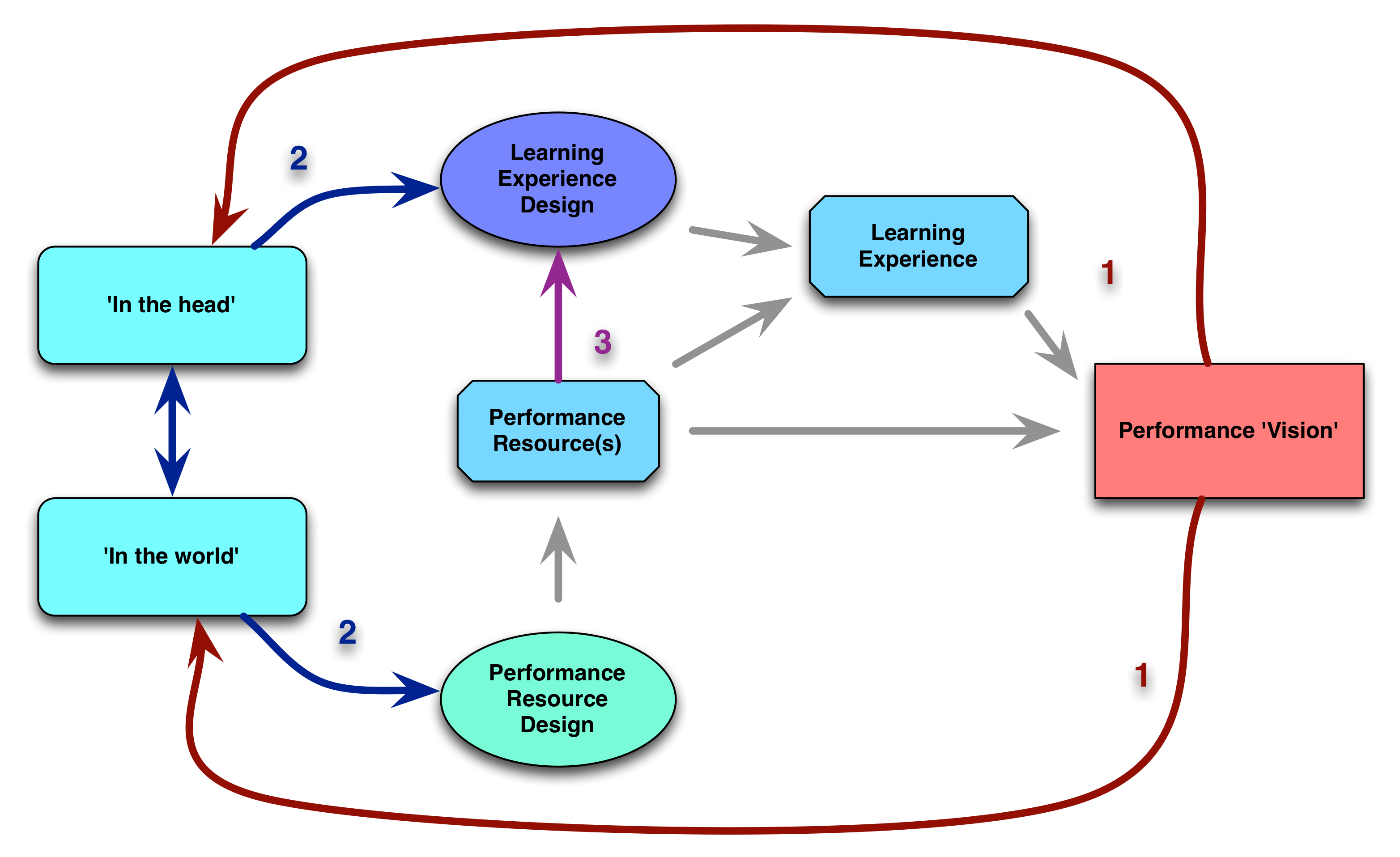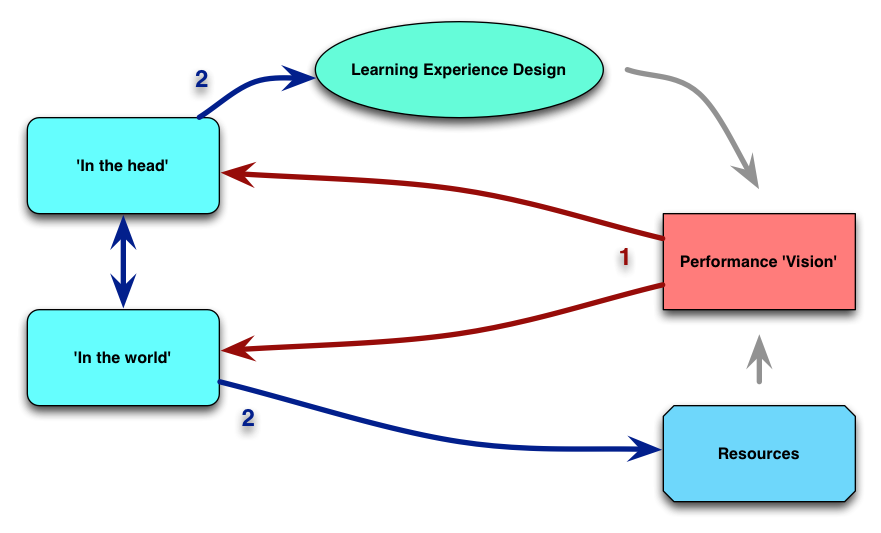In my last post, I asserted that we need evidence-based design for what we do. There are a number of sources for same. Of course, you could go do a Master’s or Ph.D. in cognition and learning, but there are shorter paths.
There are several good books out (and I believer that there is at least one more on the way) that summarize the implications of research design. Ruth Clark has been a co-author on a couple, eLearning and the Science of Instruction, and the subsequent Efficiency in Learning. Julie Dirksen’s Design for How People Learn is another good one. Michael Allen’s work on design is also recommended, e.g. Guide to eLearning.
Will Thalheimer, Ruth, and Julie regularly write and talk about these things in other forums than books. Go listen to them! I try as well, though often filtered through games, mobile, or elsewhere. There’re others, too.
A number of people run workshops on deeper design. I know I have one, and I’m sure others have them as well. Do try to make sure that it covers both cognitive and emotional elements, focusing on meaningful change.
There are gaps: there isn’t all the research we need, or at least not digested. The role of emotional engagement isn’t as well fleshed out as we’d like, and some of the research is frankly focused on studies too small to give practical guidelines (c.f. the consternation on serious game design that surrounded a recent post). Where we don’t have research, we have to make inferences from theoretical frameworks, but you should know those too. It’s better than going on ‘intuition’ or folk science.
Still, there’s no excuse to do un-engaging, over-written, and under-practiced learning. Better design doesn’t take longer (with the caveat that there’s some initial hiccup ’til we make the change). We have the knowledge, and the tools aren’t the barrier. Let’s do better, please!

